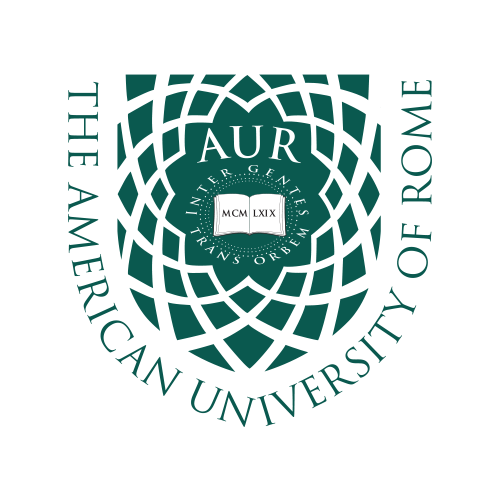Professor Andrea Dessì joined AUR’s International Relations and Global Politics program as an Assistant Professor in 2023. His areas of expertise span International Relations, Great Power Competition, Middle East history and politics, EU and US foreign policy, Historical Sociology, and Foreign Policy Analysis.
At AUR, Professor Dessì teaches courses such as International Organizations (IOs), Terrorism and Political Violence, Democracy, Populism and Authoritarianism, and the Model UN Special Course, amongst others.
Before joining AUR, Professor Dessì worked for over a decade in the policy research world at Italy’s leading think tank, the Istituto Affari Internazionali (IAI), where he remains an Associated Fellow. Based in Rome, Professor Dessì directed the Institute’s Italian Foreign Policy program and the Mediterranean, Middle East, and Africa research program, overseeing research projects, consultancy tasks, and media outreach on behalf of the Institute. During this time, Professor Dessì founded IAI’s English-language op-ed series, the IAI Commentaries, which he oversaw as Scientific Director (2017-2022) and has contributed to several EU-funded projects and research tasks (FP7 & H2020), cooperating with the Italian Foreign Ministry, EU institutions, and the private sector in Italy and abroad.
Since joining IAI in 2011, Professor Dessì has worked extensively on US and EU foreign policy towards the Middle East, focusing on the diplomatic and military history of the Arab-Israeli conflict, US policy towards Israel, and Washington’s alliance frameworks in the Middle East. His research interests include global politics and security studies, the geopolitics of the Middle East, and the intersection between global and regional trends and developments, including in the energy sector and the impact of climate change. Andrea holds a PhD in International Relations from the London School of Economics and Political Science (LSE) with a thesis on the US-Israel relationship during the 1980s and has published in a variety of academic and policy journals and media outlets as well as participating in innumerable international conferences and gatherings in Europe, the Middle East, North Africa, and the United States.
Teaching Courses
- International Organizations
- Terrorism and Political Violence
- Special Topic Course: Model UN
- Democracy, Populism and Authoritarianism
- Economic Development and Institutional Change
- The US, the EU, and China: Who is Going to Lead
Publications and Works
- Climate Change and Security in the Mediterranean: Exploring the Nexus, Unpacking International Policy Responses. Andrea Dessì and Flavia Fusco (eds.), Rome, Nuova Cultura, May 2022, 146 p.
- The Middle East and North Africa in 2021: brewing crises and geopolitical re-alignments, in Salvatore Capasso e Giovanni Canitano (eds.), Mediterranean Economies 2021-2022, Bologna, Il Mulino, 2022, p. 27-69.
- Popular Mobilisation and Authoritarian Reconstitution in the Middle East and North Africa: Ten Years of Arab Uprisings, in Silvia Colombo and Daniela Huber (eds.), Ten Years of Protests in the Middle East and North Africa. Dynamics of Mobilisation in a Complex (Geo)Political Environment, Bern [etc.], Peter Lang, 2022, 213 p.
- With Vassilis Ntousas, “The Transatlantic Relationship and the Middle East: Converging Interests, Diverging Praxis,” in Dimitris Bouris, Daniela Huber and Michelle Pace (eds.), Routledge Handbook on EU-Middle East Relations, Routledge, December 2021.
- Climate Change and Sustainability: Mediterranean Perspectives, Andrea Dessì, Daniele Fattibene and Flavia Fusco (eds.), IAI Research Studies 6, Rome, Nuova Cultura, July 2021, 135 p.
- With Roberto Aliboni and Francesca Caruso, “The Middle East and North Africa: Ten Years of Turmoil,” in S. Capasso and G. Canitano (eds.), Mediterranean Economies 2020, Bologna, Il Mulino, January 2021, p. 25-78.
- “Europe and the Eastern Mediterranean: Navigating Complexity, Mitigating Conflict(s) and Fishing for Compromise,” in Michael Tanchum (ed.), Eastern Mediterranean in Uncharted Waters: Perspectives on Emerging Geo-Political Realities, (December 2020).
- With Silvia Colombo, “Collective Security and Multilateral Engagement in the Middle East: What Role for the EU?”, in Silvia Colombo and Andrea Dessì (eds.), Fostering a New Security Architecture in the Middle East, (December 2020).
- With Riccardo Alcaro, “A Last Line of Defence: A Strategy for Europe to Preserve the Iran Nuclear Deal,” in Andrea Dessì and Vassilis Ntousas (eds.), “Europe and Iran in a Fast Changing Middle East,” Brussels & Rome, June 2019, 145 p.
- With Jordi Quero, “Unpredictability in US Foreign Policy and the Regional Order in the Middle East: Reacting vis-à-vis a Volatile Security-Provider,” British Journal of Middle Eastern Studies, Published online on 17 February 2019.
- With Lorenzo Kamel, “The Gaza Equation: The Regional Dimension of a Local Conflict,” MENARA Papers No.10, September 2018.
- “The OSCE Mediterranean Partnership, Libya and the MENA Crisis: Potentials, Limits and Prospects,” in Andrea Dessì and Ettore Greco (eds.), The Search for Stability in Libya. OSCE’s Role between Internal Obstacles and External Challenges, Rome, Nuova Cultura, May 2018, pp.15-45.
- “Fostering State and Societal Resilience in the MENA: Recommendations for the EU,” in Andrea Dessì, Silvia Colombo and Vassilis Ntousas (eds.), The EU, Resilience and the MENA Region, Brussels, FEPS-IAI, December 2017, pp.157-94.
- With Francesco Olmastroni, “Foreign Posture in a Comparative Perspective: A Qualitative and Quantitative Appraisal of Italian Foreign and Defence Policy during the Renzi Government,” Journal of Contemporary Italian Politics, Vol.9, No.2 (2017), pp.201-218.
- Editor with Riccardo Alcaro, The Uneasy Balance. Potentials and Challenges of the West’s Relations with the Gulf States, Rome, Nuova Cultura, April 2013.
- “Israel and the Palestinians in a Changing Neighbourhood,” The International Spectator, Issue 48(2), June 2013.
Professor Dessì offers expert consultation on
- US & EU foreign policy
- Middle East and North Africa geopolitics and Mediterranean relations
- Great Power Competition and International Relations (US, China, Russia)
- Italian Foreign Policy
- Peace & Conflict Studies (MENA focus)
- Middle East political economy and security

